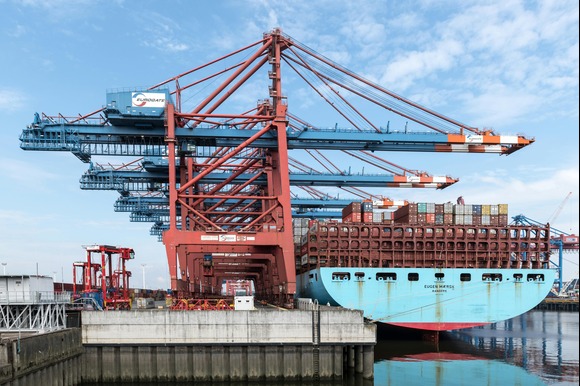Trump has imposed tariff, theUS Department of Commerce announced on Tuesday a significant expansion of steel and aluminum tariffs, now covering more than 400 additional product categories, including wind turbines, bulldozers, mobile cranes, railcars, furniture, and other heavy machinery and goods. This move imposes a 50% tariff on the steel and aluminum content of all affected products, with immediate effect.
Among the newly targeted items are parts critical to the automotive and energy industries, such as components for vehicle exhaust systems and electrical steel used in electric vehicles (EVs). Compressors and industrial pumps are also included in the updated list.
The Commerce Department said 407 categories have been newly classified as “derivative” steel and aluminum products under existing sectoral tariffs, expanding the scope of measures originally implemented to protect U.S. manufacturing and limit tariff evasion.
“Today’s action expands the reach of the steel and aluminum tariffs and shuts down avenues for circumvention – supporting the continued revitalization of the American steel and aluminum industries,” said Jeffrey Kessler, Under Secretary of Commerce for Industry and Security.
The policy change follows petitions from U.S. steel manufacturers, including Cleveland-Cliffs, who pushed for broader protections, especially for steel and aluminum automotive parts. Industry advocates argue that loopholes in earlier tariffs allowed some importers to avoid duties by sourcing parts indirectly or in semi-finished forms.
However, the decision has triggered concern among foreign automakers and multinational corporations, who argue that U.S. domestic capacity is currently insufficient to meet demand for certain specialized components. These companies had urged the Commerce Department not to include key auto parts and materials needed for EV production, citing risks to supply chains and production costs.
The tariff expansion comes amid a broader push by the U.S. to bolster domestic manufacturing and protect critical industries. Since returning to office, former President Donald Trump has imposed a 10% base tariff on steel and aluminum imports from nearly all U.S. trading partners, with higher duties levied on countries like Japan and members of the European Union. While some sectors were exempted from blanket tariffs, many were later subjected to targeted duties through separate trade mechanisms.
The ripple effects of these tariffs are already being felt across industries. Home Depot, in its latest earnings call on Tuesday, confirmed that it would need to raise prices on imported products affected by the new duties.
“There will be modest price movement in some categories,” said Richard McPhail, Chief Financial Officer of Home Depot, during the call.
Price increases are not limited to home improvement goods. Procter & Gamble, the world’s largest consumer goods manufacturer, also announced last month that it would raise prices on roughly 25% of its product portfolio due to rising import and material costs, including those associated with tariffs.
As the new tariffs take hold, analysts predict further pressure on inflation-sensitive sectors and potential retaliation or pushback from key U.S. trade partners. Business groups are calling for more nuanced approaches to industrial policy, cautioning that sweeping duties risk damaging supply chains and raising prices for American consumers.






